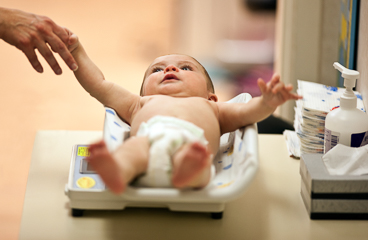Cerebral Palsy in Children: Care Instructions

Overview
Cerebral palsy (CP) is the name for a group of nerve problems that make it hard for a child to control movement.
CP is caused by injury to the brain. In most cases, this injury happens before birth.
The way your child is affected may be different than how other children are affected. For some children, it causes a limp. Others have little or no control over their arms and legs or other parts of the body. To find out more about how the disease affects your child, your doctor may do more tests.
You and your doctor can work together to create a treatment plan for your child. This plan can help manage symptoms. It can also help your child be as independent as possible. The plan will probably include physiotherapy. It may also include medicines and other therapies.
Learning that your child has CP isn't easy. And raising a child who has it can be hard. It may help to join a support group or talk with other parents who have a child with special needs, so you don't feel alone. You may also want to try counselling. It could help you understand and deal with all the emotions you may feel.
Follow-up care is a key part of your child's treatment and safety. Be sure to make and go to all appointments, and call your doctor or nurse advice line (811 in most provinces and territories) if your child is having problems. It's also a good idea to know your child's test results and keep a list of the medicines your child takes.
How can you care for your child at home?
- Learn about CP. The more you know, the better you can care for your child.
- Take care of yourself. Try to get enough rest, eat well, and exercise.
- Consider joining a support group for families of children with CP. These groups can be a source of information and tips. Your doctor can tell you how to find a group.
- Be safe with medicines. Have your child take medicines exactly as prescribed. Call your doctor or nurse advice line if you think your child is having a problem with their medicine.
Help with daily routines
- Discuss physiotherapy with your doctor. It can include special exercises and devices, which can help keep your child moving the best they can.
- Talk to your doctor about your child's special needs. Children with CP have different needs, such as bowel or skin care needs.
- Talk to your doctor about how to make your home as safe as possible.
When should you call for help?
Call 911 anytime you think your child may need emergency care. For example, call if:
- Your child stops breathing, turns blue, or becomes unconscious. Follow instructions given by emergency services while you wait for help.
- Your child has severe trouble breathing. Signs may include the chest sinking in, using belly muscles to breathe, or nostrils flaring while your child is struggling to breathe.
- Your child chokes during feeding and you are not able to get the food loose.
Call your doctor or nurse advice line now or seek immediate medical care if:
- Your child has a seizure for the first time.
Watch closely for changes in your child's health, and be sure to contact your doctor or nurse advice line if:
- Your child has any new symptoms, such as constipation or skin problems.
- Your child often coughs and chokes when eating.
- You are having trouble caring for your child.
Where can you learn more?
Go to https://www.healthwise.net/patientEd
Enter Z981 in the search box to learn more about "Cerebral Palsy in Children: Care Instructions".
Current as of: December 3, 2024
